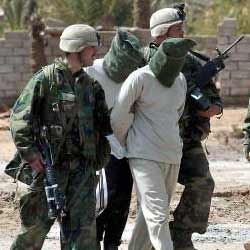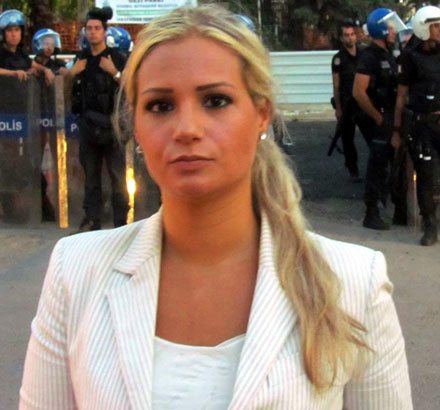By George Friedman
Last week, U.S. President Barack Obama and Cuban President Raul Castro agreed to an exchange of prisoners being held on espionage charges. In addition, Washington and Havana agreed to hold discussions with the goal of establishing diplomatic relations between the two countries. No agreement was reached on ending the U.S. embargo on Cuba, a step that requires congressional approval.
It was a modest agreement, striking only because there was any agreement at all. U.S.-Cuba relations had been frozen for decades, with neither side prepared to make significant concessions or even first moves. The cause was partly the domestic politics of each country that made it easier to leave the relationship frozen. On the American side, a coalition of Cuban-Americans, conservatives and human rights advocates decrying Cuba’s record of human rights violations blocked the effort. On the Cuban side, enmity with the United States plays a pivotal role in legitimizing the communist regime. Not only was the government born out of opposition to American imperialism, but Havana also uses the ongoing U.S. embargo to explain Cuban economic failures. There was no external pressure compelling either side to accommodate the other, and there were substantial internal reasons to let the situation stay as it is.
The Cubans are now under some pressure to shift their policies. They have managed to survive the fall of the Soviet Union with some difficulty. They now face a more immediate problem: uncertainty in Venezuela. Caracas supplies oil to Cuba at deeply discounted prices. It is hard to tell just how close Cuba’s economy is to the edge, but there is no question that Venezuelan oil makes a significant difference. Venezuelan President Nicolas Maduro’s government is facing mounting unrest over economic failures. If the Venezuelan government falls, Cuba would lose one of its structural supports. Venezuela’s fate is far from certain, but Cuba must face the possibility of a worst-case scenario and shape openings. Opening to the United States makes sense in terms of regime preservation.
The U.S. reason for the shift is less clear. It makes political sense from Obama’s standpoint. First, ideologically, ending the embargo appeals to him. Second, he has few foreign policy successes to his credit. Normalizing relations with Cuba is something he might be able to achieve, since groups like the U.S. Chamber of Commerce favor normalization and will provide political cover in the Republican Party. But finally, and perhaps most important, the geopolitical foundations behind the American obsession with Cuba have for the most part evaporated, if not permanently than at least for the foreseeable future. Normalization of relations with Cuba no longer poses a strategic threat. To understand the U.S. response to Cuba in the past half century, understanding Cuba’s geopolitical challenge to the United States is important.
Cuba’s Strategic Value
The challenge dates back to the completion of the Louisiana Purchase by President Thomas Jefferson in 1803. The Territory of Louisiana had been owned by Spain for most of its history until it was ceded to France a few years before Napoleon sold it to the United States to help fund his war with the British. Jefferson saw Louisiana as essential to American national security in two ways: First, the U.S. population at the time was located primarily east of the Appalachians in a long strip running from New England to the Georgia-Florida border. It was extremely vulnerable to invasion with little room to retreat, as became evident in the War of 1812. Second, Jefferson had a vision of American prosperity built around farmers owning their own land, living as entrepreneurs rather than as serfs. Louisiana’s rich land, in the hands of immigrants to the United States, would generate the wealth that would build the country and provide the strategic depth to secure it.
What made Louisiana valuable was its river structure that would allow Midwestern farmers to ship their produce in barges to the Mississippi River and onward down to New Orleans. There the grain would be transferred to oceangoing vessels and shipped to Europe. This grain would make the Industrial Revolution possible in Britain, because the imports of mass quantities of food freed British farmers to work in urban industries.
In order for this to work, the United States needed to control the Ohio-Missouri-Mississippi river complex (including numerous other rivers), the mouth of the Mississippi, the Gulf of Mexico, and the exits into the Atlantic that ran between Cuba and Florida and between Cuba and Mexico. If this supply chain were broken at any point, the global consequences — and particularly the consequences for the United States — would be substantial. New Orleans remains the largest port for bulk shipments in the United States, still shipping grain to Europe and importing steel for American production.
For the Spaniards, the Louisiana Territory was a shield against U.S. incursions into Mexico and its rich silver mines, which provided a substantial portion of Spanish wealth. With Louisiana in American hands, these critical holdings were threatened. From the American point of view, Spain’s concern raised the possibility of Spanish interference with American trade. With Florida, Cuba and the Yucatan in Spanish hands, the Spaniards had the potential to interdict the flow of produce down the Mississippi.
Former President Andrew Jackson played the key role in Jeffersonian strategy. As a general, he waged the wars against the Seminole Indians in Florida and seized the territory from Spanish rule — and from the Seminoles. He defended New Orleans from British attack in 1814. When he became president, he saw that Mexico, now independent from Spain, represented the primary threat to the entire enterprise of mid-America. The border of Mexican Texas was on the Sabine River, only 193 kilometers (120 miles) from the Mississippi. Jackson, through his agent Sam Houston, encouraged a rising in Texas against the Mexicans that set the stage for annexation.
But Spanish Cuba remained the thorn in the side of the United States. The Florida and Yucatan straits were narrow. Although the Spaniards, even in their weakened state, might have been able to block U.S. trade routes, it was the British who worried the Americans most. Based in the Bahamas, near Cuba, the British, of many conflicting minds on the United States, could seize Cuba and impose an almost impregnable blockade, crippling the U.S. economy. The British depended on American grain, and it couldn’t be ruled out that they would seek to gain control over exports from the Midwest in order to guarantee their own economic security. The fear of British power helped define the Civil War and the decades afterward.
Cuba was the key. In the hands of a hostile foreign power, it was as effective a plug to the Mississippi as taking New Orleans. The weakness of the Spaniards frightened the Americans. Any powerful European power — the British or, after 1871, the Germans — could easily knock the Spaniards out of Cuba. And the United States, lacking a powerful navy, would not be able to cope. Seizing Cuba became an imperative of U.S. strategy. Theodore Roosevelt, who as president would oversee America’s emergence as a major naval power — and who helped ensure the construction of the Panama Canal, which was critical to a two-ocean navy — became the symbol of the U.S. seizure of Cuba in the Spanish-American War of 1898-1900.
With that seizure, New Orleans-Atlantic transit was secured. The United States maintained effective control over Cuba until the rise of Fidel Castro. But the United States remained anxious about Cuba’s security. By itself, the island could not threaten the supply lines. In the hands of a significant hostile power, however, Cuba could become a base for strangling the United States. Before World War II, when there were some rumblings of German influence in Cuba, the United States did what it could to assure the rise of former Cuban leader Fulgencio Batista, considered an American ally or puppet, depending on how you looked at it. But this is the key: Whenever a major foreign power showed interest in Cuba, the United States had to react, which it did effectively until Castro seized power in 1959.
The Soviet Influence
If the Soviets were looking for a single point from which they could threaten American interests, they would find no place more attractive than Cuba. Therefore, whether Fidel Castro was a communist prior to seizing power, it would seem that he would wind up a communist ally of the Soviets in the end. I suspect he had become a communist years before he took power but wisely hid this, knowing that an openly communist ruler in Cuba would revive America’s old fears. Alternatively, he might not have been a communist but turned to the Soviets out of fear of U.S. intervention. The United States, unable to read the revolution, automatically moved toward increasing its control. Castro, as a communist or agrarian reformer or whatever he was, needed an ally against U.S. involvement. Whether the arrangement was planned for years, as I suspect, or in a sudden rush, the Soviets saw it as a marriage made in heaven.
Had the Soviets never placed nuclear weapons in Cuba, the United States still would have opposed a Soviet ally in control of Cuba during the Cold War. This was hardwired into American geopolitics. But the Soviets did place missiles there, which is a story that must be touched on as well.
The Soviet air force lacked long-range strategic bombardment aircraft. In World War II, they had focused on shorter range, close air support aircraft to assist ground operations. The United States, engaging both Germany and Japan from the air at long range, had extensive experience with long-range bombing. Therefore, during the 1950s, the United States based aircraft in Europe, and then, with the B-52 in the continental United States, was able to attack the Soviet Union with nuclear weapons. The Soviets, lacking a long-range bomber fleet, could not retaliate against the United States. The balance of power completely favored the United States.
The Soviets planned to leapfrog the difficult construction of a manned bomber fleet by moving to intercontinental ballistic missiles. By the early 1960s, the design of these missiles had advanced, but their deployment had not. The Soviets had no effective deterrent against a U.S. nuclear attack except for their still-underdeveloped submarine fleet. The atmosphere between the United States and the Soviet Union was venomous, and Moscow could not assume that Washington would not use its dwindling window of opportunity to strike safely against the Soviets.
The Soviets did have effective intermediate range ballistic missiles. Though they could not reach the United States from the Soviet Union, they could cover almost all of the United States from Cuba. The Russians needed to buy just a little time to deploy a massive intercontinental ballistic missile and submarine force. Cuba was the perfect spot from which to deploy it. Had they succeeded, the Soviets would have closed the U.S. window of opportunity by placing a deterrent force in Cuba. They were caught before they were ready. The United States threatened invasion, and the Soviets had to assume that the Americans also were threatening an overwhelming nuclear attack on the Soviet Union. They had to back down. As it happened, the United States intended no such attack, but the Soviets could not know that.
Cuba was seared into the U.S. strategic mentality in two layers. It was never a threat by itself. Under the control of a foreign naval power, it could strangle the United States. After the Soviet Union tried to deploy intermediate range ballistic missiles there, a new layer was created in which Cuba was a potential threat to the American mainland, as well as to trade routes. The agreement between the United States and the Soviet Union included American guarantees not to invade Cuba and Soviet guarantees not to base nuclear weapons there. But Cuba remained a problem for the United States. If there were a war in Europe, Cuba would be a base from which to threaten American control of the Caribbean, and with it, the ability to transit ships from the U.S. Pacific Fleet to the Atlantic. The United States never relieved pressure on Cuba, the Soviets used it as a base for many things aside from nuclear weapons (we assume), and the Castro regime clung to the Soviets for security while supporting wars of national liberation, as they were called, in Latin America and Africa that served Soviet strategic interests.
Post-Soviet Cuba
With the collapse of the Soviet Union, Castro lost his patron and strategic guarantor. On the other hand, Cuba no longer threatened the United States. There was an implicit compromise. Since Cuba was no longer a threat to the United States but could still theoretically become one, Washington would not end its hostility toward Havana but would not actively try to overthrow it. The Cuban government, for its part, promised not to do what it could not truly do anyway: become a strategic threat to the United States. Cuba remained a nuisance in places like Venezuela, but a nuisance is not a strategic threat. Thus, the relationship remained frozen.
Since the Louisiana Purchase, Cuba has been a potential threat to the United States when held by or aligned with a major European power. The United States therefore constantly tried to shape Cuba’s policies, and therefore, its internal politics. Fidel Castro’s goal was to end American influence, but he could only achieve that by aligning with a major power: the Soviets. Cuban independence from the United States required a dependence on the Soviets. And that, like all relationships, carried a price.
The exchange of prisoners is interesting. The opening of embassies is important. But the major question remains unanswered. For the moment, there are no major powers able to exploit Cuba’s geographical location (including China, for now). There are, therefore, no critical issues. But no one knows the future. Cuba wants to preserve its government and is seeking a release of pressure from the United States. At the moment, Cuba really does not matter. But moments pass, and no one can guarantee that it will not become important again. Therefore, the U.S. policy has been to insist on regime change before releasing pressure. With Cuba set on regime survival, what do the Cubans have to offer? They can promise permanent neutrality, but such pledges are of limited value.
Cuba needs better relations with the United States, particularly if the Venezuelan government falls. Venezuela’s poor economy could, theoretically, force regime change in Cuba from internal pressure. Moreover, Raul Castro is old and Fidel Castro is very old. If the Cuban government is to be preserved, it must be secured now, because it is not clear what will succeed the Castros. But the United States has time, and its concern about Cuba is part of its DNA. Having no interest now, maintaining pressure makes no sense. But neither is there an urgency for Washington to let up on Havana. Obama may want a legacy, but the logic of the situation is that the Cubans need this more than the Americans, and the American price for normalization will be higher than it appears at this moment, whether set by Obama or his successor.
We are far from settling a strategic dispute rooted in Cuba’s location and the fact that its location could threaten U.S. interests. Therefore, opening moves are opening moves. There is a long way to go on this issue.






